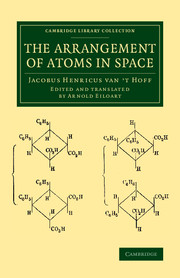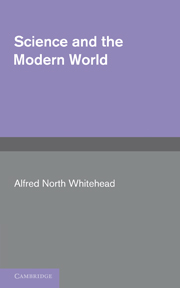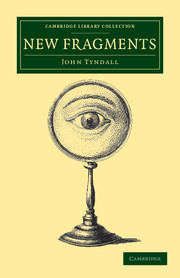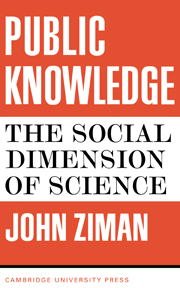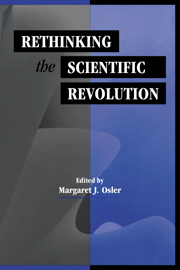Atoms, Pneuma, and Tranquillity
Epicurean and Stoic Themes in European Thought
- Editor: Margaret J. Osler, University of Calgary
- Date Published: August 2005
- availability: Available
- format: Paperback
- isbn: 9780521018463
Paperback
Other available formats:
Hardback, eBook
Looking for an inspection copy?
Please email [email protected] to enquire about an inspection copy of this book
-
This volume examines the influence that Epicureanism and Stoicism, two philosophies of nature and human nature articulated during classical times, exerted on the development of European thought to the Enlightenment. Although the influence of these philosophies has often been noted in certain areas, such as the influence of Stoicism on the development of Christian thought and the influence of Epicureanism on modern materialism, the chapters in this volume contribute a new awareness of the degree to which these philosophies and their continued interaction informed European intellectual life well into early modern times. The influence of the Epicurean and Stoic philosophies in the areas of literature, philosophy, theology, and science are considered. Many thinkers continue to perceive these philosophies as significant alternatives for understanding the human and natural worlds. Having become incorporated into the canon of philosophical alternatives, Epicureanism and Stoicism continued to exert identifiable influences on scientific and philosophical thought at least until the middle of the eighteenth century.
Read more- Should be put in philosophy, history and philosophy of science, and classics sections of bookshops
- An in-depth and detailed study of the way European thought has been influenced by the ancient Greek philosophies of the Epicureans and Stoics
- A rough explanation of the title: - Pneuma: breath, spirit, soul - Tranquillity: both the Stoics and the Epicureans believed that a good life led to a state of tranquillity
Customer reviews
Not yet reviewed
Be the first to review
Review was not posted due to profanity
×Product details
- Date Published: August 2005
- format: Paperback
- isbn: 9780521018463
- length: 320 pages
- dimensions: 229 x 152 x 18 mm
- weight: 0.47kg
- availability: Available
Table of Contents
Introduction Margaret J. Osler and Letizia A. Panizza
1. Ethics and logic in stoicism Gerard Verbeke
2. Medieval connectives, Hellenistic connections: the strange case of propositional logic Calvin G. Normore
3. Stoic psychotherapy in the Middle Ages and Renaissance: Petrarch's De Remediis Letizia A. Panizza
4. Alonso de Cartagena and John Calvin as interpreters of Seneca's De Clementia Nicholas G. Round
5. The Epicurean in Lorenzo Valla's On Pleasure Maristella de P. Lorch
6. Seneca's role in popularizing Epicurus in the Renaissance Louise Fothergill-Payne
7. Stoic contributions to early modern science Peter Barker
8. Fortune, fate, and divination: Gassendi's voluntarist theology and the baptism of Epicureanism Margaret J. Osler
9. Epicureanism and the creation of a privatist ethic in early seventeenth-century France Lisa Tunick Sarasohn
10. Robert Boyle on Epicurean atheism and atomism J. J. Macintosh
11. Stoic and Epicurean doctrines in Newton's system of the world B. J. T. Dobbs
12. Locke, Willis, and the seventeenth-century Epicurean soul John P. Wright
13. The Epicurean way of ideas: Gassendi, Locke, and Berkeley Thomas M. Lennon
14. The stoic legacy in the early Scottish enlightenment M. A. Stewart.
Sorry, this resource is locked
Please register or sign in to request access. If you are having problems accessing these resources please email [email protected]
Register Sign in» Proceed
You are now leaving the Cambridge University Press website. Your eBook purchase and download will be completed by our partner www.ebooks.com. Please see the permission section of the www.ebooks.com catalogue page for details of the print & copy limits on our eBooks.
Continue ×Are you sure you want to delete your account?
This cannot be undone.
Thank you for your feedback which will help us improve our service.
If you requested a response, we will make sure to get back to you shortly.
×

